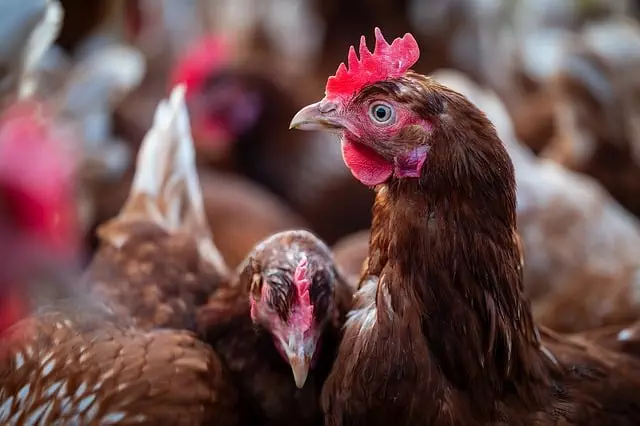Homeowners can significantly reduce their environmental footprint by adopting eco-friendly yard care practices such as Yard Waste Removal and Recycling. These practices prevent organic matter from contributing to landfill methane emissions by transforming it into compost or mulch, which enriches soil health and supports plant growth. Composting, mulching, and grasscycling are key methods that lessen the need for chemical fertilizers and contribute to biodiversity and sustainable ecosystems. Yard Waste Removal and Recycling initiatives not only promote environmental sustainability but also offer practical benefits like soil enrichment and reduced landfill waste. By participating in these programs, homeowners help mitigate greenhouse gas emissions and support a more sustainable future, showcasing the importance of integrating Yard Waste Removal and Recycling into routine yard maintenance for the health of the planet and local communities.
Homeowners increasingly recognize the importance of sustainable practices in all aspects of life, including yard care. This article delves into eco-friendly yard care strategies that not only maintain the aesthetic appeal of outdoor spaces but also contribute to environmental health. We’ll explore the environmental impact of traditional yard waste management and offer a suite of green alternatives for common maintenance activities. From composting organic matter to adopting xeriscaping principles, learn how to support local ecosystems while conserving resources. Discover innovative approaches to yard waste removal and recycling, and how professional services can aid in this eco-conscious endeavor. Whether you’re a DIY enthusiast or seeking community programs, this guide will equip you with knowledge to transform your yard into an environmentally friendly sanctuary.
- Embracing Green Practices in Yard Care: An Overview
- The Environmental Impact of Traditional Yard Waste Management
- Eco-Friendly Alternatives to Common Yard Maintenance Activities
- Composting Organic Yard Waste: A Sustainable Solution
- Mulching for Soil Health and Waste Reduction
- Beneficial Insects and Biodiversity in Your Yard
Embracing Green Practices in Yard Care: An Overview

Homeowners increasingly recognize the importance of eco-friendly yard care to protect the environment and promote sustainability. By adopting green practices, they can minimize their ecological footprint while maintaining healthy, beautiful landscapes. A significant aspect of this shift involves the proper management of yard waste, which traditionally has contributed to landfill issues. Yard Waste Removal and Recycling programs are becoming more prevalent, offering homeowners a responsible way to dispose of grass clippings, leaves, branches, and other organic matter. These programs not only reduce methane emissions from landfills but also convert yard waste into nutrient-rich compost or mulch that can be used to enrich the soil, thereby closing the loop on the natural cycle of plant growth. By participating in these initiatives, homeowners contribute to healthier ecosystems and support local environmental efforts. Additionally, composting organic matter on-site is another viable option for those with the space and resources. This practice returns valuable nutrients to the soil, reduces the need for chemical fertilizers, and significantly cuts down on the volume of waste sent to landfills. In essence, integrating Yard Waste Removal and Recycling into yard care routines is a step toward a more sustainable future, one green thumb at a time.
The Environmental Impact of Traditional Yard Waste Management

Traditional yard waste management practices have significant environmental impacts that are increasingly under scrutiny. The removal of yard waste, which often includes grass clippings, leaves, branches, and other organic matter, traditionally involves collection and transport to landfills or incineration facilities. This process not only consumes fossil fuels but also contributes to the release of greenhouse gases, such as carbon dioxide and methane, which are detrimental to air quality and climate change mitigation efforts. Moreover, once in landfills, yard waste can decompose anaerobically, producing methane—a potent greenhouse gas with over 25 times the global warming potential of carbon dioxide over a 100-year period.
In contrast to these conventional methods,yard waste recycling offers a more sustainable alternative. Composting and mulching are two effective ways to recycle yard waste. These practices convert organic matter into valuable soil amendments that can enhance soil fertility and structure, thereby supporting plant growth and reducing the need for chemical fertilizers. By diverting yard waste from landfills and incinerators through recycling, homeowners can significantly decrease their environmental footprint, conserve natural resources, and promote a healthier ecosystem within their own backyards. Yard waste removal and recycling are thus critical components of an eco-conscious approach to landscaping maintenance, offering both ecological and practical benefits for the environment.
Eco-Friendly Alternatives to Common Yard Maintenance Activities

Homeowners who are committed to eco-friendly practices can find numerous alternatives to common yard maintenance activities, particularly when it comes to yard waste removal and recycling. Instead of bagging grass clippings and leaves for the trash bin, these organic materials can be repurposed as nutrient-rich additions to garden beds, acting as a compostable mulch or soil amendment. This not only reduces the volume of waste sent to landfills but also enriches the soil, promoting a healthier garden ecosystem. Additionally, leaving grass clippings on the lawn after mowing—a practice known as ‘grasscycling’—can significantly cut down on the need for chemical fertilizers.
Moreover, when it comes to dealing with yard waste, composting is a pivotal eco-friendly solution. Composting not only recycles organic matter but also diverts methane emissions from landfills where such waste would otherwise decompose anaerobically. By setting up a compost pile or bin, homeowners can manage yard trimmings and kitchen scraps, creating a valuable resource for their gardens. Implementing proper yard waste removal and recycling strategies not only benefits the environment but also contributes to sustainable living practices that conserve natural resources and promote biodiversity. Homeowners who integrate these eco-conscious approaches into their yard care routine can make a meaningful impact on their local ecosystems and overall environmental health.
Composting Organic Yard Waste: A Sustainable Solution

Homeowners committed to sustainable practices are increasingly turning to composting organic yard waste as a means of yard waste removal and recycling. This eco-friendly approach not only diverts waste from landfills but also enriches soil health, reducing the need for synthetic fertilizers. By composting grass clippings, leaves, and other plant-based debris, yards become part of a closed-loop ecosystem where organic matter is transformed into nutrient-rich humus. This process not only contributes to the health of plants and lawns but also significantly reduces greenhouse gas emissions that would otherwise result from traditional yard waste disposal methods. Additionally, composting can be tailored to the size of any yard, making it an accessible practice for urban dwellers as well as those in rural areas. Implementing a compost system for yard waste removal and recycling is a simple yet impactful step towards a more sustainable and environmentally friendly lifestyle.
The benefits of composting extend beyond the individual yard; they contribute to broader environmental goals. By engaging in yard waste removal and recycling through composting, homeowners participate in the reduction of methane emissions from decomposing organic material in landfills. Moreover, this practice enhances soil biodiversity by supporting a variety of microorganisms and insects that are essential for healthy plant growth. Compost acts as a natural pesticide and fertilizer, minimizing the reliance on chemical alternatives that can be harmful to local ecosystems. Adopting composting practices is a tangible action that supports the health of the planet, showcasing the potential of individual choices to make a collective environmental impact.
Mulching for Soil Health and Waste Reduction

Homeowners committed to eco-friendly practices are increasingly turning to mulching as a sustainable approach to yard care, which offers dual benefits for soil health and waste reduction. By returning organic materials like leaves, grass clippings, and garden trimmings back into the soil through mulching, homeowners can significantly enhance the fertility and structure of their gardens. Mulch acts as a protective cover, conserving moisture, regulating soil temperature, and preventing erosion while decomposing to provide essential nutrients to plants. This natural recycling process not only nurtures the soil but also diminishes yard waste that would otherwise require removal. Implementing yard waste recycling programs in local communities can further reduce the environmental impact of routine yard maintenance. These programs often compost yard waste, transforming it into valuable organic matter for agricultural and landscaping purposes, thereby promoting a closed-loop system and reducing the need for landfill space. By embracing mulching techniques as part of their eco-friendly yard care practices, homeowners can contribute to healthier ecosystems and less waste in landfills. Yard Waste Removal and Recycling initiatives are essential in supporting these efforts and fostering a greener community environment.
Beneficial Insects and Biodiversity in Your Yard

Integrating beneficial insects into your yard not only enhances biodiversity but also contributes to a healthier ecosystem. By encouraging native bees, butterflies, and other pollinators, homeowners can promote plant growth and ensure the sustainability of their gardens. These creatures play a pivotal role in the pollination process, which is crucial for the reproduction of many plants. To support these insects, consider creating habitats that mimic their natural environments, such as wildflower meadows or shrubby areas with diverse flora. Additionally, avoid using chemical pesticides and herbicides that can harm beneficial species. Instead, opt for organic methods of yard maintenance, which align with eco-friendly practices. Yard waste removal and recycling are integral to maintaining a balanced ecosystem within your property’s boundaries. Composting organic matter not only recycles nutrients back into the soil but also provides habitats for beneficial insects. Implementing a yard waste composting system can transform what might otherwise be waste into valuable resources that nourish the land and support a diverse range of wildlife. By adopting such practices, homeowners can actively participate in preserving local biodiversity and creating a harmonious environment within their yards.
Homeowners eager to adopt eco-friendly yard care practices have a range of sustainable options at their disposal, from composting organic waste to utilizing mulch for soil health. By embracing green practices in yard maintenance, they can significantly reduce the environmental impact typically associated with traditional yard waste management. Adopting these eco-conscious methods not only benefits the environment but also supports local biodiversity by encouraging beneficial insects to thrive. Opting for yard waste removal and recycling services is a proactive step in this direction, ensuring that organic materials are repurposed rather than discarded. Consequently, integrating these practices into daily yard care routines can contribute to a healthier planet and more resilient ecosystems.


